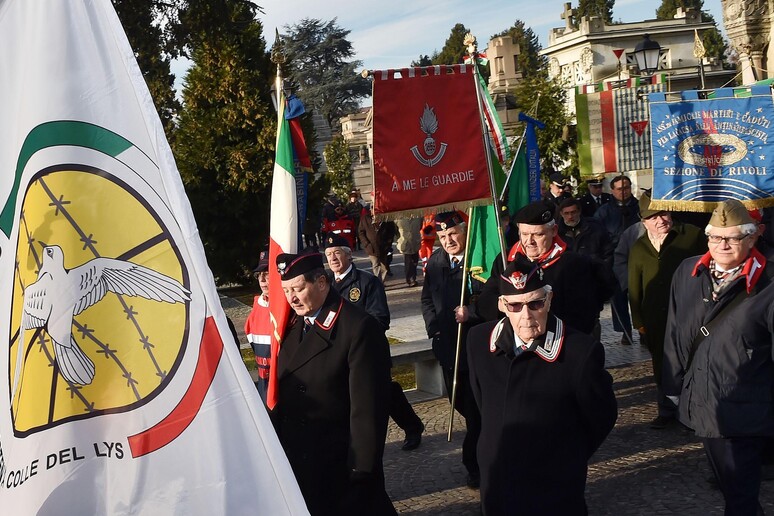Italy is marking Holocaust Remembrance Day with a series of events on the 70th anniversary of the liberation of the largest Nazi concentration camp, Auschwitz-Birkenau.
The camp, in Nazi-occupied Poland, was liberated by the Soviet army on January 27, 1945. At least 1.1 million prisoners are estimated to have died in the camp, including many Italians, and events are scheduled in parliament and Italian schools to keep the memory of the mass atrocity and the lessons learnt alive. Prime Minister Matteo Renzi noted in the preface to a recent biography of one of those who survived the camp, Nedo Fiano, that there were few direct witnesses still alive 70 years later, and that thus ''the real danger is that, once this bulwark against forgetting disappears, oblivion - or worse, acquiescence - will ensue''. In carrying out the duties of the Italian president after Giorgio Napolitano resigned earlier this month, Senate Speaker Pietro Grasso will award a medal of honor to seven Italian citizens who were deported and imprisoned at Nazi concentration camps.
Lower House Speaker Laura Boldrini and Cabinet Undersecretary Graziano Delrio will instead be present a ceremony attended by hundreds of students and the head of Italy's Jewish communities, Renzo Gattegna, will be speaking, as will three students and Education Minister Stefania Giannini. A documentary film on the concentration camps will be shown and music played. At the end of the ceremony, Grasso will give awards to schools that won the 13th edition of the 'Youth Remember the Holocaust' competition. On Monday there was a symbolic 'handing-over-of-the-keys' ceremony presided over by Rome mayor Ignazio Marino for a temporary Holocaust Museum that will eventually be located in the historic Villa Torlonia. The building to be used in the meantime is in the Jewish Ghetto and faces onto a square where Nazis and Fascists rounded up hundreds of Italians to be sent to concentration camps on October 16, 1943. In Milan, a presentation for the book 'Il Mendicante di Gerusalemme' ('A Beggar in Jerusalem') by Auschwitz survivor and 1986 Nobel Peace Prize laureate Elie Wiesel, recently translated into Italian for the first time, will be held at the Terrasanta bookshop.
In recent years, there have been a number of attacks on Jews in Europe, including a shooting in May that killed three people at the Jewish Museum in Brussels, while four people lost their lives in an attack in Paris at a kosher supermarket during three days of terror in France. In 2012 a rabbi and three children were murdered in the French city of Toulouse.
A study by the Bertelsmann Foundation released on Monday shows that while three-quarters of Israelis reject the idea of putting the past behind them, 58% of Germans instead say the time has come. A majority of both, however, state that Germany has a special responsibility towards Israel due to the Third Reich, when Germans killed an estimated six million European Jews. On Monday, German Chancellor Angela Merkel said that Germans had a responsibility to speak out against intolerance, given the guilt it bears for the Holocaust. Speaking at an event marking the liberation of Auschwitz, Merkel said that Germans should speak out against recent anti-immigrant demonstrations in Dresden and elsewhere.
She said "we don't want to hear slogans full of hatred against people in Germany who found a new home here, or who are just looking for shelter when threatened with war and persecution."
ALL RIGHTS RESERVED © Copyright ANSA











